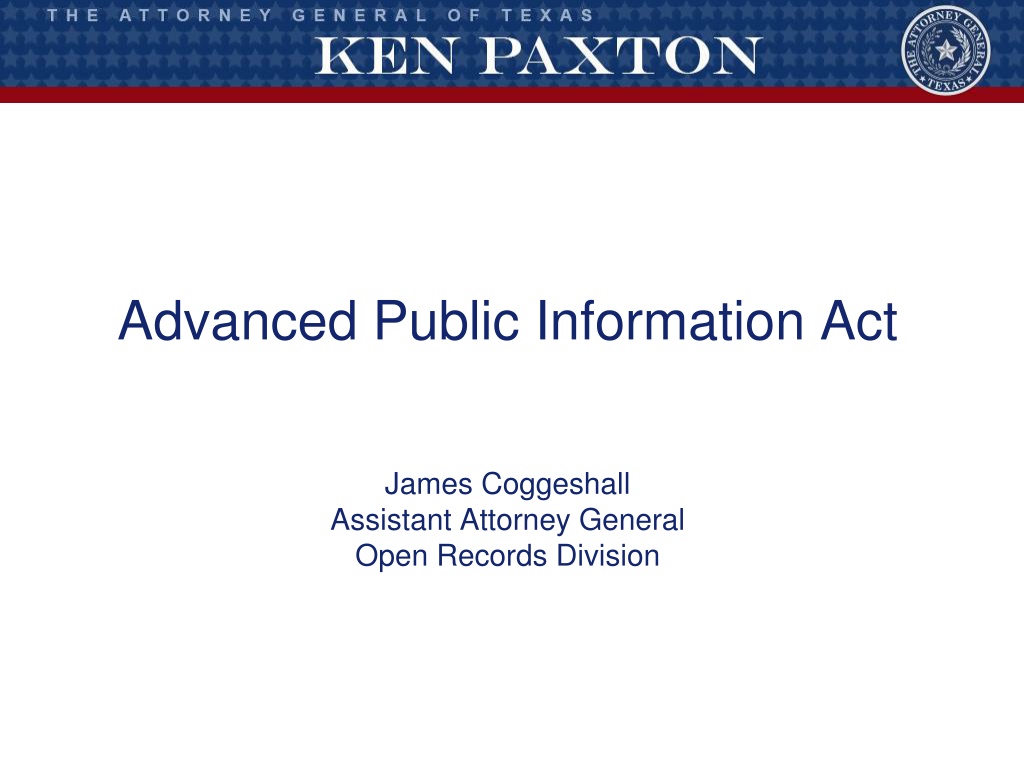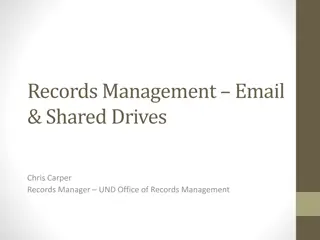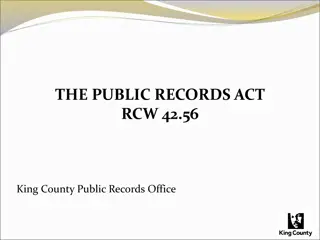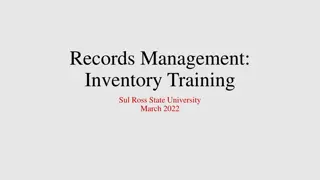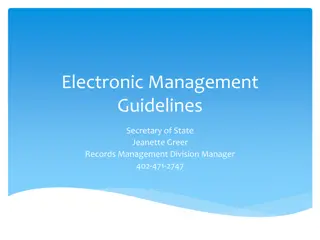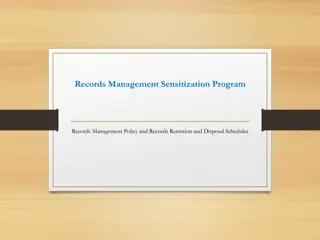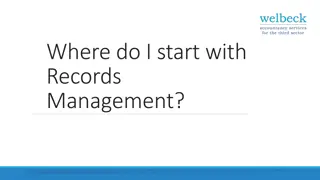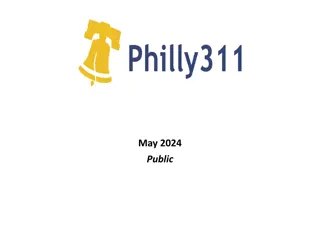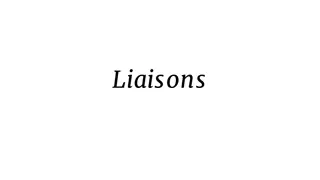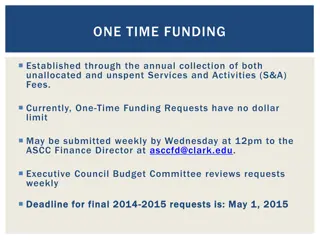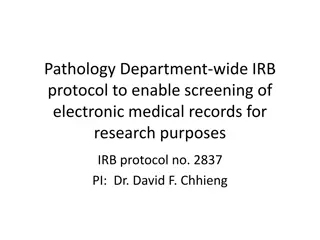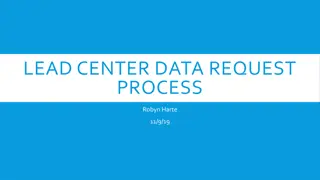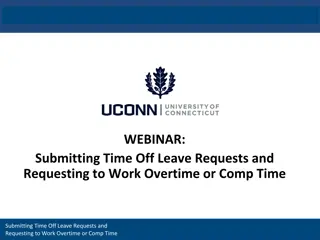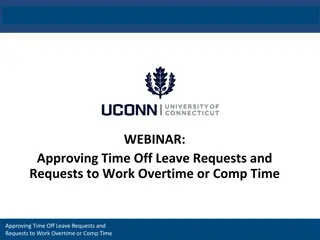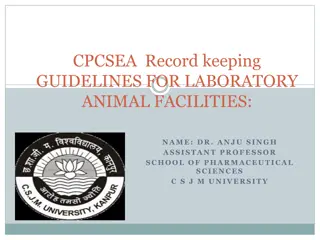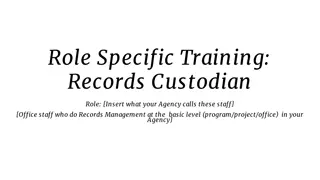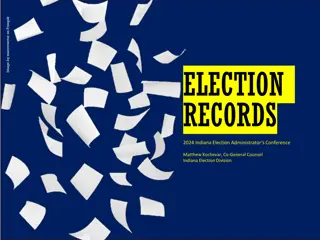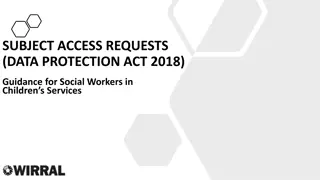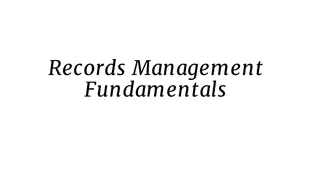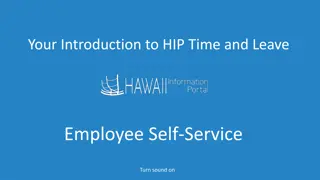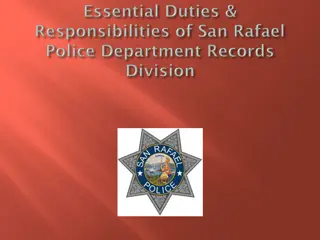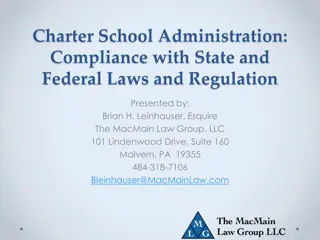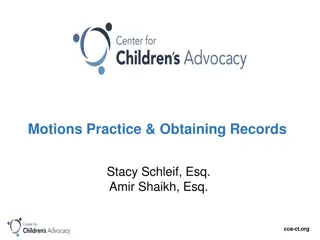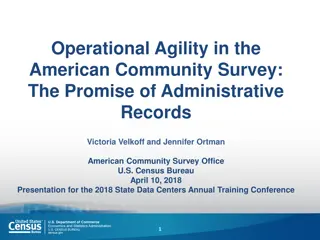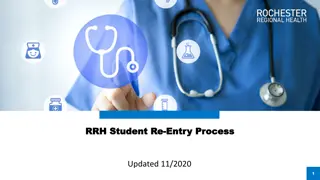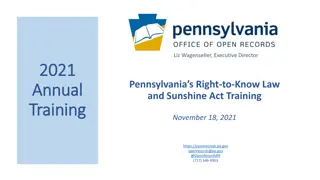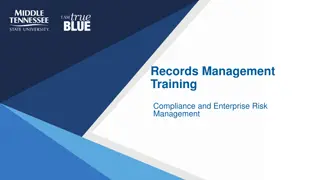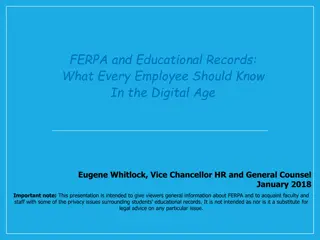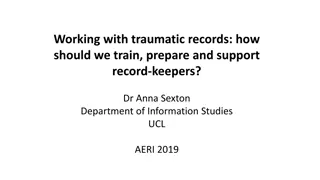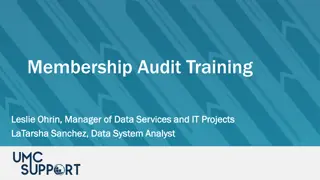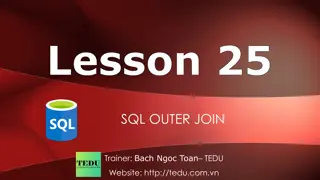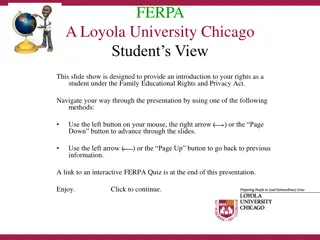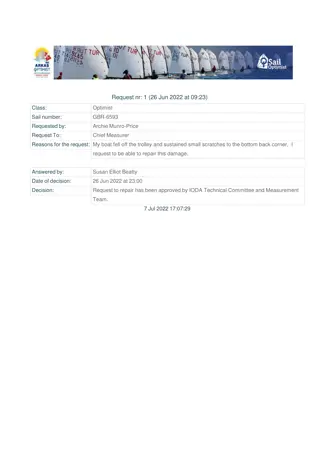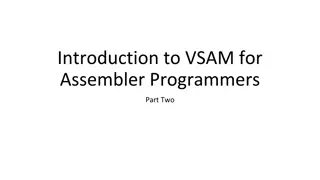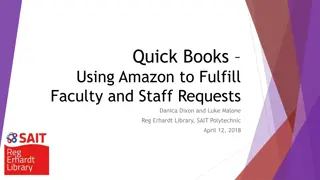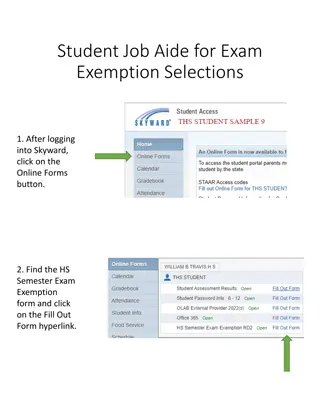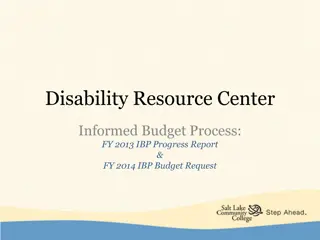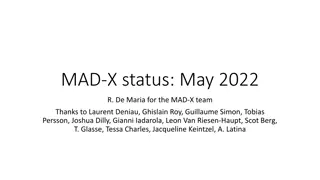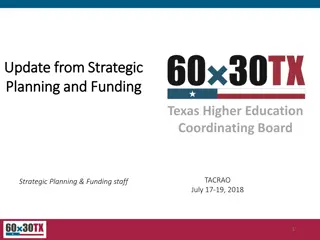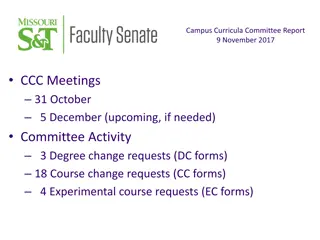Open Records and Requests Process Overview
This presentation provides valuable information on the Advanced Public Information Act, open records letter rulings issued between 2001-2017, withdrawing requests for rulings, requesting previous determinations, and procedural obligations under Section 552.301. It covers reasons for withdrawal, common types of previous determinations, factors influencing granting such requests, and procedural obligations including redacting information. The slides emphasize timely and clear communication when withdrawing requests or responding to determinations.
Download Presentation

Please find below an Image/Link to download the presentation.
The content on the website is provided AS IS for your information and personal use only. It may not be sold, licensed, or shared on other websites without obtaining consent from the author. Download presentation by click this link. If you encounter any issues during the download, it is possible that the publisher has removed the file from their server.
E N D
Presentation Transcript
Advanced Public Information Act James Coggeshall Assistant Attorney General Open Records Division
Open Records Letter Rulings Issued in Fiscal Years 2001-2017 35,000 30,000 25,000 20,000 15,000 10,000 5,000 0 2001 2002 2003 2004 2005 2006 2007 2008 2009 2010 2011 2012 2013 2014 2015 2016 2017 2018
Withdrawing Your Request for a Ruling (Slide 1 of 3) Why withdraw? We have 45 days to issue a ruling. If you don t withdraw, then we may issue a ruling telling you to release the requested information.
Withdrawing Your Request for a Ruling (Slide 2 of 3) Most common reasons for withdrawal: You decide to release the information. You clarify/narrow the request (552.222) and release information to the clarified/narrowed request. Requestor voluntarily withdraws You later determine there is no responsive information. By operation of law (552.2615) Send us a copy of the cost estimate
Withdrawing Your Request for a Ruling (Slide 3 of 3) Promptly respond to our communications to you regarding withdrawal Respond in writing via mail or e-filing; no faxes or e-mails Always remember to copy the requestor on all correspondence.
Requesting a Previous Determination (Slide 1 of 2) Common types: Dates of birth Section 552.108(a)(1) 9-1-1 caller names and telephone numbers
Requesting a Previous Determination (Slide 2 of 2) Factors in determining whether we will grant a previous determination: Frequency Errors in the request for ruling (552.301 violation; wrong information marked) Errors made in the previous requests for ruling How fungible is the information How often do you use other previous determinations
Procedural Obligations under Section 552.301 (Slide 1 of 6) Gov t Code 552.301(b) Gov t Code 552.301(e) Gov t Code 552.301(e-1) Redacting information from brief to requestor Requestor agrees to longer deadline
Procedural Obligations under Section 552.301 (Slide 2 of 6) Proof of timeliness Postmarks Metermarks Certified mail Electronic filing Hand delivery Statement of mailing / certificate of service No faxes or e-mails to our office for ruling requests
Procedural Obligations under Section 552.301 (Slide 3 of 6) Copies of request for information made on governmental body s home webpage
Procedural Obligations under Section 552.301 (Slide 4 of 6) Clarification: Gov t Code 552.222 No response Clarification made after 10-business days of receiving the request
Procedural Obligations under Section 552.301 (Slide 5 of 6) Cost Estimates The Cost Hotline: 888-672-6787
Procedural Obligations under Section 552.301 (Slide 6 of 6) Only send in a representative sample: Gov t Code 552.301(e)(1)(D) [S]ubmit representative samples of the information if a voluminous amount of information was requested
Label Your Documents! Gov t Code 552.301(e)(1)(D): a copy of the specific information requested or representative samples, labeled to indicate which exceptions apply to which parts of the documents Mark which arguments apply to which part of the submitted documents. Avoid making us try to figure out which exception goes with which information.
Electronic Copies of Information (Slide 1 of 3) Can we open it? Compressed data (zip) Broken disks Corrupted data Blank disk Do we need special software required to view it? Did you supply it? Watch for issues with e-mails copied on Outlook
Electronic Copies of Information (Slide 2 of 3) Tell us what information is at issue in each file. Label the types of recordings Body-cam Dash-cam Interviews Which recording goes with which investigation
Electronic Copies of Information (Slide 3 of 3) Use as few devices as possible Combine multiple PDFs if they can all fit into one file Representative samples
The Language of Your Briefing (Slide 1 of 2) It s not an appellate brief, being concise and clear is more important that format. It s not a request to the Opinions Committee. We don t answer questions or issue advisory opinions in the ruling. Try the Hotline (877-673-6839)
The Language of Your Briefing (Slide 2 of 2) Avoid legalese. Make sure your markings match your briefing. Avoid arguments that failed in previous rulings. Try to use your own labeling system or routing number. We blind copy requestors and third parties on our correspondence (rulings; 7-day letters) Beware of cut and paste, especially where exceptions require explanation particular to submitted information.
Before requesting a ruling . . . (Slide 1 of 4) Does the requestor have a right of access by statute or under the Act? Full access: Member of Legislature (Gov t Code 552.008) Access to CHRI State agencies: Texas Education Agency; licensing boards Federal agencies: military recruiters; background checks Privacy interests Gov t Code 552.023 Common-law privacy; Gov t Code 552.130, .136, .137 Intergovernmental transfer
Before requesting a ruling . . . (Slide 2 of 4) Is the information Super Public ? By statute (for example: Open Meetings Act) Gov t Code 552.022 Gov t Code 552.0225 Gov t Code 2261.253
Before requesting a ruling . . . (Slide 3 of 4) Do you really want to withhold the information? Discretionary vs. mandatory exceptions You can ask to narrow (Gov t Code 552.222)
Before requesting a ruling . . . (Slide 4 of 4) Is the information subject to a previous determination? Type One PD (exact same information) Type Two PD (same type of information)
Multiple rulings for same information Subsequent requests for same information before a ruling is issued Combine? Send in subsequent requests? Reference any prior ruling you are aware of.
If you decide to request a ruling, consider the following: Only send us responsive information that you seek to withhold. Release the rest promptly. Contextual and reference material Why are you requesting a ruling on information subject to a previous determination? Let us know if the situation has changed. If there is a particular issue you do not know how to address, then spell it out in the briefing. Also consider calling the Hotline; that may get information to the requestor more quickly and save you from sending us a brief.
Are third-party interests at stake? Other governmental bodies Gov t Code 552.108 law enforcement representation Intergovernmental transfer Private third parties and individuals Notices under Gov t Code 552.305 Tell us who was notified If you have an electronic list, send it in. No representative samples (generally) Favish family privacy representations
How we rule Procedural obligations always reviewed Most encompassing arguments first Important when considering a representative sample Dispositive
Review the exceptions you want to raise (Slide 1 of 3) Gov t Code 552.103 vs. Gov t Code 552.022 Gov t Code 552.107 Non-Privileged information
Non-privileged information example To: City Attorney From: City Public Works Dept. I am forwarding you an e-mail. Please advise on this situation. >To: City Public Works Dept. >From: John Q. Public >My trash hasn t been collected in two months. Is it true that I don t have to pay my property taxes now?
Review the exceptions you want to raise (Slide 2 of 3) Gov t Code 552.103 vs. Gov t Code 552.022 Gov t Code 552.107 Non-privileged information Fee bills (Gov t Code 552.022(a)(16) and Texas Rule of Evidence 503)
Review the exceptions you want to raise (Slide 3 of 3) Gov t Code 552.111 Work product privilege (anticipated litigation) Deliberative process privilege Draft documents to be intended for release to public Gov t Code 552.022 Factual or administrative If you mark correctly and release the remaining information, it builds trust with the requestor.
Texas Homeland Security Act (HSA) Gov t Code 418.176 418.182 Staffing requirements and tactical plan of emergency response provider ( 418.176) Vulnerability assessment of critical infrastructure ( 418.177) Vulnerabilities of critical infrastructure ( 418.181)
Effective searching on Westlaw or Lexis (Slide 1 of 2) Helpful terms and connectors Within sentence; paragraph; number of words (/s, /p, /n) Require terms (&) Exclude terms (%) Helpful terms to search: may withhold or may not be withheld Right of access Statute title, language, and subsection number Names of forms (W-5; F-5; CR-3) Our regular ruling language (boilerplate) Entity names
Effective searching on Westlaw or Lexis (Slide 2 of 2) Beware of amendments to statutes and rules or court cases Look for recent rulings. Have we issued rulings to you before on the topic? Look for rulings involving an exception that were issued to you.
